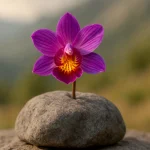13 Unexpected Benefits of Letting Go of Passions and Embracing New Interests
Letting go of passions can lead to unexpected benefits and new opportunities. This article explores the surprising advantages of embracing fresh interests, backed by insights from experts in various fields. From business growth to personal development, discover how shifting focus can transform your life and career.
- Embrace Flow States for Business Growth
- Discover New Horizons Beyond Obsessions
- Transform Creativity Through Emotional Design
- Find Purpose in Practical Home Solutions
- Shift Focus to Enhance Leadership Skills
- Expand Influence Through Diverse Interests
- Align Passions with Personal Growth
- Apply Old Skills to New Creative Pursuits
- Champion Unheard Voices in Tourism
- Turn Gaming Obsession into Tech Career
- Combine Technical Skills with User Empathy
- Pivot from Music to Digital Marketing
- Bridge Technical and Business Worlds
Embrace Flow States for Business Growth
I spent decades building businesses through pure hustle and willpower, believing that grinding harder was the only path to success. When I finally let go of that “achievement at all costs” mentality and started exploring neuroscience-based approaches, something completely unexpected happened: my business actually grew faster with less effort.
The transition forced me to study how the brain actually works under stress versus flow states. What I found was that my amygdala-driven decision making was keeping me stuck in survival mode, while my prefrontal cortex — where real strategy happens — was essentially offline. This wasn’t just theory; I could literally feel the physical tension in my shoulders release when I stopped forcing outcomes.
The most surprising benefit was how this shift affected my clients. When I stopped operating from urgency and started leading from clarity, my clients began achieving breakthrough results they’d been chasing for years. One client told me our work wasn’t just coaching — it was “a reckoning” that helped her build a business that actually reflected who she was, not someone else’s version of success.
My energy came back, my decisions got cleaner, and my team rose to meet the new rhythm. What started as letting go of hustle culture became the foundation for sustainable growth that doesn’t consume the leader.
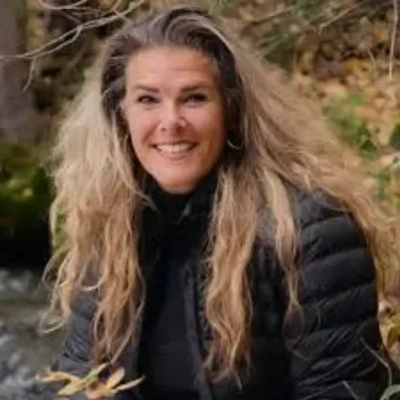 Dr Barbara Eaton
Dr Barbara Eaton
Coach, Dr Barbara Eaton
Discover New Horizons Beyond Obsessions
For years, I was obsessed with rock climbing. It was my identity — I planned weekends, vacations, and even friendships around it. But at some point, the drive faded. At first, I fought it. I thought letting go meant losing a piece of myself. Then I leaned into other interests, like travel writing and deep work projects, and something unexpected happened: I realized that passions don’t just give, they also trap.
When you’re in the thick of one obsession, your life quietly orbits around it. Dropping climbing freed up mental real estate I didn’t even know I’d rented out. It created space for me to build new skills, connect with different people, and actually enjoy periods of boredom — something climbing had crowded out. I discovered that passions can be like scaffolding: incredibly useful at one stage of life, but eventually meant to be dismantled so you can see the view unobstructed.
That transition enriched my life in a way I hadn’t anticipated — it gave me a sense of flexibility, a reminder that identity isn’t locked to one passion. That realization made me braver about trying new things, because I stopped believing I had to cling to any one pursuit forever.
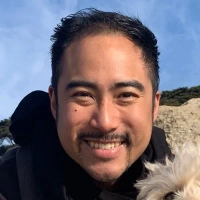 Derek Pankaew
Derek Pankaew
CEO & Founder, Listening.com
Transform Creativity Through Emotional Design
Coming from the world of graphic design, I had to put traditional graphic design on the back burner when I joined Davincified, and I literally struggled with that. I had spent years mastering clean layouts and minimal design — it was my thing, you know?
But painting custom paint-by-number art brought me into this muddy world of color where perfection was never the goal. We would get images from customers of wedding photos, photos of pets, family moments, things that needed to be warm, not pretty. My sleek design skills were totally out of place.
The crazy part was that taking a step back from what I thought I was good at allowed this entire new side of creativity to come out that I never knew I had. So I started thinking about design from an emotional perspective rather than simply function. Working with customer stories also taught me that sometimes the best designs are the ones that make a person cry happy tears, not get awards.
Now I work on projects very differently. Instead of asking how this can look right, I ask how this can feel right. That one simple change changed everything — at work and in my view of creativity in general.
The greatest surprise was that by abandoning one passion, you are free to create space for a larger and more fulfilling passion. Sometimes you need to stop being who you were so you can become who you are meant to be.
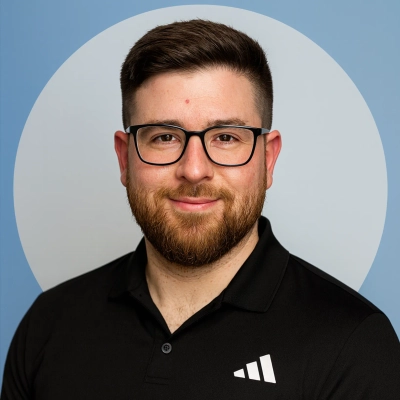 Jacob Elban
Jacob Elban
Creative Strategist, Davincified
Find Purpose in Practical Home Solutions
Letting go of an old passion opened the door to something I didn’t expect. I used to spend years focused on detailed interior design projects, but as my interests shifted toward home organization, I discovered a whole new kind of satisfaction. Helping families reclaim their spaces and turn cluttered rooms into calm, functional areas gave me a joy I hadn’t anticipated. Seeing a client’s relief and excitement when they finally feel at home in their own space is truly rewarding.
This transition taught me the value of small, deliberate changes. Organizing a chaotic kitchen or living room isn’t just about making it look nice; it’s about restoring balance and giving people the confidence to live freely in their homes. Focusing on these practical solutions has brought me a sense of accomplishment and growth that I never expected when I stepped away from my previous passion.
One client, a single parent juggling work and kids, shared that after we restructured her home, she finally felt she could breathe and focus on her family without constant stress. Experiences like hers have shown me that leaving one passion behind doesn’t mean losing purpose; it can redirect your energy into something even more meaningful. Shifting into home organization also changed the way I see challenges.
Every cluttered closet or chaotic basement became a chance to get creative with storage solutions while connecting with clients on a personal level. Combining technical skill with understanding someone’s story has given me both professional satisfaction and creative freedom I didn’t foresee when I first let my old passion fade. Embracing new interests has been transformative. I’ve learned that passions evolve, and exploring new paths can enrich life in ways you never imagine, creating growth for yourself and real, positive change for others.
 Lauren Hammer
Lauren Hammer
Founder & Lead Organizer, Revive My Spaces
Shift Focus to Enhance Leadership Skills
I have lived through this transition and experienced it first-hand. When I started running in my 20s, my passion for running developed quite naturally. I was running 60 miles a week at the time, which required very disciplined early mornings and a schedule focused on achieving maximum performance throughout the day. While this commitment worked well for me for years, I found around 2019 that my interests were shifting towards other forms of fulfillment.
When I transitioned away from strenuous training to more manageable 3-mile jogs, the brain space that had been occupied by intense training became available for leadership opportunities. I started monthly sessions called Culture Coffee where people shared about themselves and their career goals. These 30-minute discussions provided valuable insights I’d never had access to before: three employees were interested in mentorship opportunities, two needed support with skill development, and one had fresh ideas about how we could focus on improving our customer experience.
With my more flexible schedule, I was able to spend quality time with each individual as they grew. Over the six months, our employee satisfaction score increased from 7.4 to 8.9. What I hadn’t expected was that stepping back from competitive sport actually enhanced my leadership ability and fostered the collaborative culture that became the heart of NativePath’s company culture. I also learned that sometimes, unexpectedly, professional growth can come from personal growth.
 Dr. Chad Walding
Dr. Chad Walding
Co-Founder and Chief Culture Officer, NativePath
Expand Influence Through Diverse Interests
For years, my passion was hardware. I would stay late at night debugging systems and testing specifications. That focus worked well in the early days, but gradually I saw that it limited my opportunities. After a while, that passion faded, and I developed new interests in strategy, compliance, and digital planning for schools.
The unintentional reward was influence. I became the advisor who could answer questions about how ICT decisions impacted the quality of teaching and Ofsted results, rather than the technician who knew how to fix machines. That change meant I could sit and talk to headteachers and governors in meetings about learning outcomes rather than just network speeds.
It also benefited my work on a personal level. I learned to speak across finance, curriculum, and inspection structures. That variety filled me with satisfaction and kept my work interesting in ways I didn’t foresee. As I lost interest in one area, I grew in others that I never expected to love.
The moral is that fading interests are not a defeat. They make space for skills that link you up into larger conversations, and in my case, that transition allowed me to have more influence in education than I ever did when I was so deep in the weeds of technical detail.
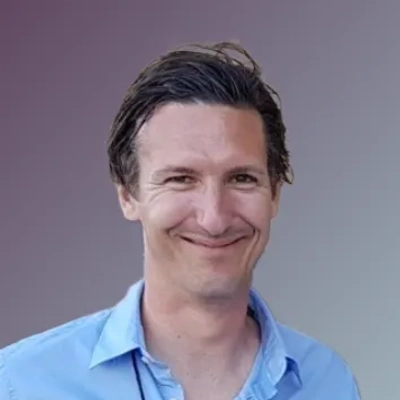 Mark Friend
Mark Friend
Company Director, Classroom365
Align Passions with Personal Growth
When I first started my career, I was a teacher. I enjoyed working with students and being part of their growth, but over time I felt my passion for the classroom fading. At first, this was discouraging. I had spent years preparing for that career, and stepping away felt like I was leaving something unfinished. What I did not expect was the freedom that came from giving myself permission to explore new interests.
That exploration led me to massage therapy, a field I never would have considered in my younger years. To my surprise, the skills I had built as a teacher carried over beautifully. Listening well, creating a safe and encouraging environment, and guiding others through a process were all part of my new role. Instead of helping students with academics, I was now helping clients care for their bodies, reduce stress, and find relief.
The unexpected benefit of this transition was how aligned it felt. I discovered a new passion that combined my love of people with hands-on healing work. Massage therapy also gave me opportunities to teach in a different way, showing clients how posture, movement, and self-care can improve their health.
Another blessing was balance. As a mom, shifting into massage therapy gave me flexibility to spend more time with my family while still pursuing meaningful work.
Letting my first passion fade opened the door to something that fits me better today. I learned that growth often means releasing the old to make room for the new.
 Erin Ruddy
Erin Ruddy
Owner, Winston-Salem Massage and Bodywork
Apply Old Skills to New Creative Pursuits
My passion was restoring old, intricate equipment. It was a meticulous process — every part had to be perfect. It was a huge part of my identity. But over time, the passion started to feel like a chore, and it faded. I felt a sense of guilt about it, as if I was giving up a part of myself.
The unexpected benefit that emerged from letting go was the realization that the skills I had built were not tied to the activity itself. The passion was gone, but the knowledge remained. I was able to transfer the discipline, problem-solving skills, and meticulous attention to detail to a completely new interest: photography. It was a new, more creative pursuit, and it enriched my life in ways I hadn’t anticipated.
The transition had a direct impact on my professional life. From an operations standpoint, my understanding of the inner workings of objects helped me to be more precise and efficient. From a marketing standpoint, the creative eye I developed from photography helped me to tell a more compelling and visual story. I was able to see our products and our business in a completely new light. The two worlds merged in a way I never would have expected.
My advice is that you have to be willing to let go of an old passion without guilt. The skills you built from it are not gone. They are with you, and they can be applied to something new. The best way to grow is to allow yourself to explore new interests. You might be surprised by the new skills and perspectives you discover.
 Illustrious Espiritu
Illustrious Espiritu
Marketing Director, Autostar Heavy Duty
Champion Unheard Voices in Tourism
As my interest in competitive trekking started to wane, I felt I was losing something valuable. I had pushed myself up mountains such as the Inca Trail, Kilimanjaro, and Base Camp of Everest over the years, and that was the motivation to continue. After it had slackened, I was able to glance beyond the climbs. I observed how the hard life of the porters and guides, the long working hours, and the unfair treatment were tolerated and accepted by many as a normal way of life. Parting with my old passion cleared the way to look at what was always there in front of me.
That transition marked a new direction in my life. I started talking, writing, and organizing groups to strive to improve the working conditions of the workers who bear tourism on their shoulders. What I gained was unexpected. The pleasure of being able to climb the mountain was replaced with the even greater satisfaction of speaking on behalf of people who had always been silenced.
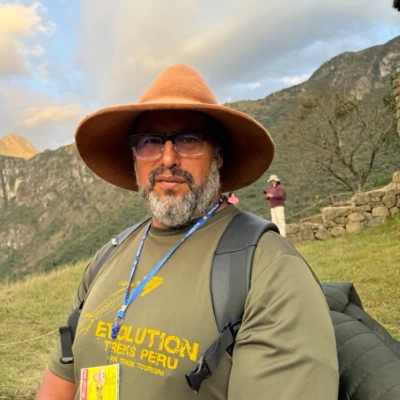 Miguel Angel Gongora Meza
Miguel Angel Gongora Meza
Founder & Director, Evolution Treks Peru
Turn Gaming Obsession into Tech Career
I am a person who had dropped a 12-year obsession with World of Warcraft that took up 8 hours per day. As a leader of 40-person raids and logistics of servers, my systems knowledge was developed, but the interest waned when our guild collapsed during Mythic attempts. In March 2020, I erased all of it and moved on with my life altogether.
This time wastage made me turn to Python automation in managing game servers. In six months, I developed monitoring tools that are 73 times faster than conventional solutions in identifying memory leaks. My experience in raid leadership directly translated to the administration of 500+ member communities in Rust and Minecraft servers. The skills from that analytical process, perfecting DPS rotations, are now being used to create backend solutions in three large gaming networks, with annual revenues of $180,000 and half the amount of time on the job. Quitting that online grind provided me with actual technical skills that currently enable thousands of players every day. At times, your greatest victory is when you drop something that is comfortable.
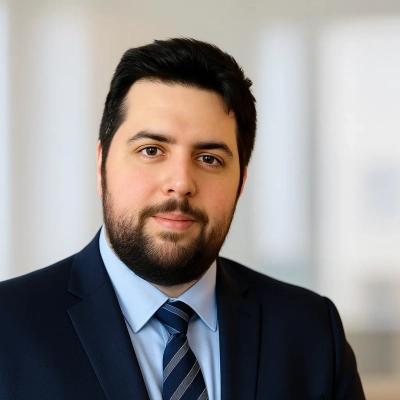 Michael Pedrotti
Michael Pedrotti
Founder, GhostCap
Combine Technical Skills with User Empathy
Looking back, the greatest surprise was also the most productive one — the moment I let go of trying to force a competitive programming path on myself after burning out in college pursuing it. I had been grinding on LeetCode for years and competing against others in contests over that time, thinking it would be the only thing I could rely on for a tech career.
When I finally stopped pursuing that path and accepted my obsession with code and programming interfaces, something magical happened. Every aspect of coding user interfaces uncovered a part of my brain that I didn’t know existed. I was suddenly not just about solving algorithms in isolation – I was creating usable and valuable experiences for real people.
That shift dramatically changed my approach to problem-solving. While I had learned how to solve problems from my technical competitive programming background, building web apps brought about questions of thoughtfulness. How would users actually use this “feature?” What would make something intuitive for an end user?
That transition period taught me that technical skill becomes astronomically more powerful when combined with empathy and creativity. Importantly, the knowledge I had built in algorithms didn’t disappear; it became the stepping stone that made me a stronger full-stack developer.
Even more so, combining that analytical thinking with user-centered design became my greatest competitive advantage! While most other developers were either pure technicians or pure creatives, I was both. That sense would eventually lead me to identify gaps and flaws in how coding and tech education were being distributed, which have shaped everything I do in the present.
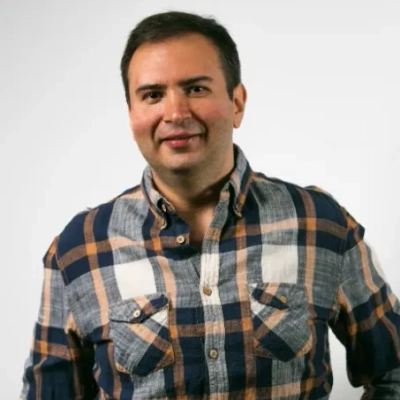 Mircea Dima
Mircea Dima
CTO / Software Engineer, AlgoCademy
Pivot from Music to Digital Marketing
Before, music encompassed my life. I was spending close to 40 hours a week producing tracks and lyrics, and playing performances at small venues around Washington, D.C. A majority of my income was going right back into gear like $800 microphones and studio sessions, and my life felt spent on chasing the next show. It was exhilarating, yet a short-lived instability, and I usually found myself perplexed by the problem of how to actually build something permanent.
I switched when I created a simple site to advertise my music and got carried away with making it visible. I began learning SEO just for traffic, and tried content, structure, and keywords until the site started getting thousands of visitors. I went down that rabbit hole, and eventually became engrossed in digital marketing and then building Direction.com. Walking away from music created the freedom I needed to grow something that allowed my own creative energy to flourish and provide me with a sense of direction I never really had before.
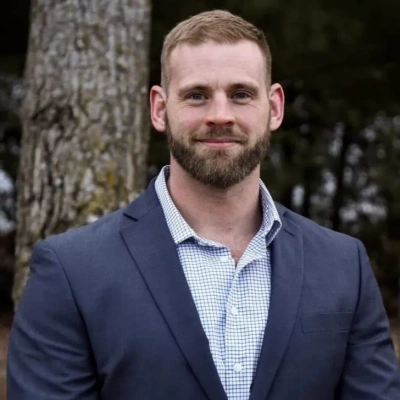 Brad Jackson
Brad Jackson
Director of Operations | Ecommerce Founder, After Action Cigars
Bridge Technical and Business Worlds
Coding consumed all of my waking nights. I used to spend nights writing code and weekends reading about new frameworks because I believed that this singular focus would bring me success faster. However, the burnout was especially tough during my third year as a developer.
Once I distanced myself a bit from pure coding and started to research SEO consulting, something truly extraordinary began to happen. The analytical skills I gained during my study of programming worked perfectly for studying search algorithms and user behavior patterns. I learned that project management is not just about timelines and deliverables, but much more about reading people, anticipating roadblocks, and getting systems to work effectively.
This transformation opened up doors I had not thought possible. Students started reaching out for non-technical help. They were interested in learning how technology could be applied to business strategy, how to make complex ideas understandable to non-technical stakeholders, and how to build a long-term career.
The move exposed me to the fact that expertise is no longer just about depth in a single field. Enterprises require skilled people who are able to bridge gaps between technical and business teams. My background in writing helped me decode and simplify complex SEO plans into useful facts for clients, and my foundation in programming earned me credibility when addressing technical applications.
What initially appeared to be creative fatigue became my ultimate career resource.
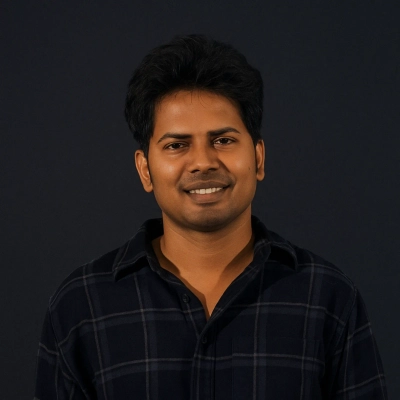 Rahul Jaiswal
Rahul Jaiswal
Project Manager, Geeks Programming




